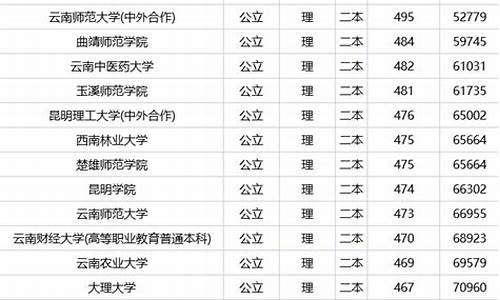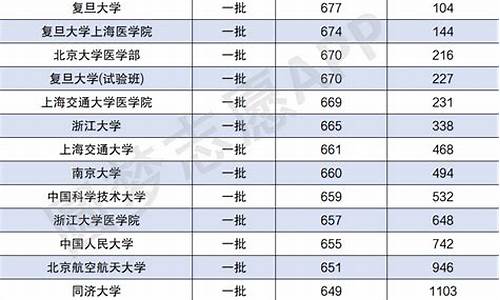您现在的位置是: 首页 > 教育趋势 教育趋势
高考语法最简_高考语法讲解视频
tamoadmin 2024-05-15 人已围观
简介《高中英语语法-浅谈虚拟语气的特殊用法》由英语我整理,更多请访问:https://www.liuxue86.com/english/。本内容整理时间为05月12日,如有任何问题请联系我们。 浅谈虚拟语气的特殊用法 1. 当虚拟条件从句中的谓语动词和主句中的谓语动词发生的时间不一致时,主句和从句的谓语动词应根据实际的时间选用适当的动词形式。如: If you had earned enoug

《高中英语语法-浅谈虚拟语气的特殊用法》由英语我整理,更多请访问:https://www.liuxue86.com/english/。本内容整理时间为05月12日,如有任何问题请联系我们。
浅谈虚拟语气的特殊用法
1. 当虚拟条件从句中的谓语动词和主句中的谓语动词发生的时间不一致时,主句和从句的谓语动词应根据实际的时间选用适当的动词形式。如:
If you had earned enough money,you would live a happy life in the future.
如果你已挣了足够的钱,你今后就会过上幸福的生活。
(从句与过去事实相反,谓语动词用过去完成时;主句与将来事实相反,谓语动词用? would/should/could/might+ 动词原形?。)
2. 在虚拟语气中,有时假设的情况并不是以条件状语从句的形式表示,而是通过相应的介词或连词来表示,如 without, but for, or, but, otherwise 等。如:
But for your help,we couldn?t have finished the task in time. (= If you hadn?t helped us? tomorrow?)
要不是你的帮助,我们就不会按时完成任务。
3. 在 if 引导的虚拟条件句中,如果条件状语从句位于句首,且从句中含有 were, had 或 should ,则可以省略 if ,并用倒装结构。如:
Should it rain tomorrow,we would have to stay at home. (= If it should rain tomorrow?)
如果明天下雨,我们就得呆在家里。
4. 如果主句中含有 would rather, would as soon, would sooner 或 would prefer ,则从句要用过去时表示当时或将来的情况,用过去完成时表示过去的情况,表达希望或婉转的责备。如:
I would prefer he worked hard.
我倒希望他能够努力学习。
I would just as soon you had returned the book yesterday.
我真希望你昨天把这本书还了。
5. 在? It?s (high/ about) time + that 从句?中, that 从句的谓语动词要用虚拟语气,表示?是该的时候了?,其形式为一般过去时或? should + 动词原形?,但 should 不能省略。如:
It?s time that we began our meeting.
是该开会的时候了。
It is high time that we should tell him the truth.
是我们该告诉他真相的时候了。
6. 在表示建议、命令、要求、坚持( suggest , order , demand , propose , request , command , insist )等相关的名词性从句中,谓语动词要用虚拟语气? (should) + 动词原形?。如:
The order that we should reach the small village before daybreak came just now.
要求我们在天亮之前赶到小村庄的命令刚刚下达。(同位语从句)
The suggestion is that we (should) recite a passage each day.
建议是我们每天应背诵一篇短文。(表语从句)
It is demanded that we (should) get everything ready by tonight.
我们被要求今晚之前把一切都准备好。(主语从句)
7. 在? It is + 形容词 + that 从句?中,从句的谓语动词要用虚拟语气? (should) + 动词原形?。这类形容词有 necessary, important, essential, strange, natural 等。如:
It is necessary that he (should)be sent to the hospital at once.
立刻送他进医院是非常必要的。
8. 由 wish 引起的表示愿望的宾语从句,其谓语要用虚拟语气。当 wish 表示的是与现在或当时事实相反的愿望时,它所引起宾语从句的谓语动词要用一般过去时或过去进行时;当 wish 表示的是与过去事实相反的愿望时,它所引起宾语从句的谓语动词要用过去完成时;当 wish 表示的是将来难以实现的愿望时,它所引起宾语从句的谓语动词要用? would/ should/ could/ might + 动词原形?。如:
I wish I had enough money to buy a car.
我希望能有足够的钱来买一辆小汽车。(表示的是现在)
He whishes he had not lost the chance.
他真希望没有失去机会。(表示的是过去)
I wish I would join the army when I grow up.
我希望长大后能够参军。(表示的是将来)
9. 在 insist 和 suggest 后的宾语从句中常用虚拟语气表示建议、要求或命令。但当 insist 表示?坚称;主张?时,宾语从句要用陈述语气;当 suggest 表示?表明;暗示?时,宾语从句也要用陈述语气。如:
She insisted that she had seen a thief climb into the house through the window.
她坚持说她曾看见一个小偷从窗口爬进了房间。
The smile on his face suggested that he had passed the exam.
他脸上的微笑表明他已通过了考试。
10. 在 as if / as though 引导的状语从句表示的是非真实情况时,从句的谓语动词要用过去时或过去完成时。如:
She talked about the film as if she had really seen it.
她谈论那部影片,就好像她确实看过一样。
安徽?梁静渊 《高中英语语法-浅谈虚拟语气的特殊用法》由英语我整理,更多请访问:https://www.liuxue86.com/english/
一、什么是独立主格结构
所谓独立主格结构就是一个与句子相对独立的带有逻辑主语的结构。
由于这个逻辑主语与它所支配的行为状态表达的是辅助主要句子的另一层独立的意思,加之要用代词和名词的主格形式(现代英语中名词的主格与宾格是一致的)表示,因此这种逻辑主语就称作独立主格。逻辑主语加上它所支配的行为状态就构成了一种语法结构,这种语法结构称为独立主格结构。如下列例句中的括号部分:
* (Everyone being ready), the teacher began his class. 每个人都准备好后,老师开始上课。
独立主格(即逻辑主语):Everyone
独立主格的行为状态:being ready
起到的辅助作用:表示 the teacher began his class 发生的时间
* (It being National Day today),the streets are very crowded. 由于今天是国庆节,街上很拥挤。
独立主格:It
独立主格的行为状态:being National Day today
起到的辅助作用:表示 the streets are very crowded 的原因
The manager looks relaxed, (many things settled). 由于许多事情已经处理好了,经理看上去很轻松。
独立主格:many things
独立主格的行为状态:settled
起到的辅助作用:表示 The manager looks relaxed 的原因
二、独立主格结构的构成
独立主格由两部分组成——
1、逻辑主语(即独立主格):由代词的主格或名词充当独立主格
2、叙述语:用来陈述逻辑主语的行为状态。
其中叙述语是独立主格的重点。
三、能够构成独立主格结构中叙述语的词语
1、现在分词(-ing 非谓语动词)
——用作时间状语
The chairman began the meeting , everyone being seated. 每个人坐好后,主席开始开会。(相当于一个时间状语从句after everyone was seated)
——用作原因状语
Many eyes watching him, he felt a bit nervous. 许多眼睛看着他,他感到有点儿紧张。(相当于一个原因状语从句As many eyes were watching him)
——用作条件状语
Time permitting, we will have a picnic next week. 时间允许的话,我们下星期将进行一次野炊。(相当于一个条件状语从句If time permits)
My health allowing, I will work far into the night. 我的健康许可的话,我愿工作到深夜。(相当于一个条件状语从句If my health allows)
——用作伴随方式的状语
The boy lay on the grass, his eyes looking at the sky. 男孩躺在草地上,眼睛看着天空。(相当于一个并列分句and his eyes were looking at the sky)
2、过去分词(-ed非谓语动词)
* The book written in simple English, English beginners were able to read it. 该书是用简单英语写的,英语初学者也能看懂(原因状语 , = As the book was written in simple English,English beginners were able to read i)
* He was listening attentively in class, his eyes fixed on the blackboard. 他上课专心听讲,眼睛紧盯着黑板。(方式状语,= He was listening attentively in class, and his eyes were fixed on the blackboard. )
* The task completed, he had two months' leave. 任务完成以后,他休了两个月的假(时间状语。=When the task had been completed,he had two months' leave. )
3、不定式(to do)
* I send you 100 dollars today, the rest to follow in a year. 现寄给你100美元,其余部分将在一年以后再寄。(方式状语,= I send you 100 dollars today, and the rest is to follow in a year.)
* The manager looks worried,many things to be settled. 经理看上去很着急, 有这么多的事情要处理。(原因状语,= The manager looks worried because many things will be settled)
.
4、形容词短语
* He turned to me, his eyes sleepy. 他睡眼惺忪地转向我。(= He turned to me, and his eyes were sleepy.)
* He stood there, his mouth wide open. 他站在那里,嘴张得大大的。(= He stood there, and his mouth was wide open.)
5、小品副词 .
* School over, we all went home. 放学了,我们都回家了。(= School was over, and we all went home.)
* He sat at his desk, his shoes off. 他坐在课桌旁,没穿鞋子。( = He sat at his desk and his shoes were off.)
6、介词短语
* He is standing in front of the blackboard, his back towards us. 他站在黑板面前,背对着我们。( = He was standing in front of the blackboard, and his back was towards us.)
* The new teacher came in, a smile on her face. 新老师面带微笑走了进来。( = The new teacher came in and she had a smile on her face.)
* The teacher came into the classroom,a rule in his hand. 老师走进教室,手里拿着一把直尺。( = The teacher came in and a ruler was in his hand.)









